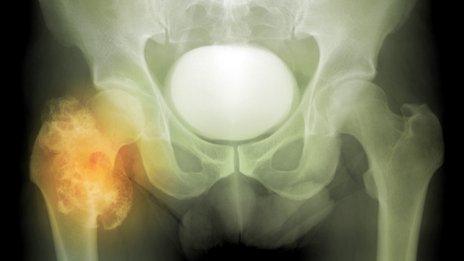UEA bone cancer drug trials show survival rates increase
- Published
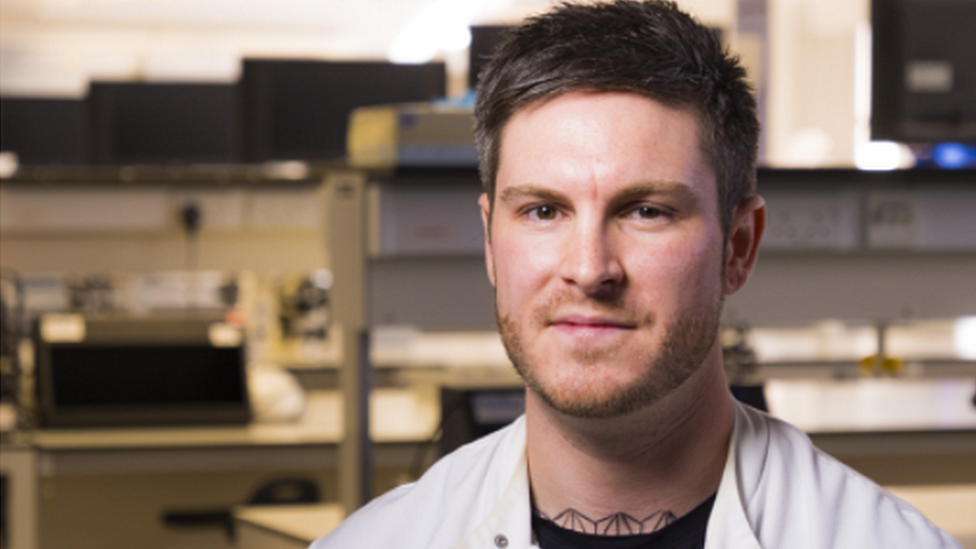
Lead researcher Dr Darrell Green was inspired to study childhood bone cancer after his best friend Ben Morley died from the disease as a teenager
A new drug could help increase survival rates of more people with bone cancer, particularly children, said scientists.
Researchers at the University of East Anglia said CADD522 works against all the main types of primary bone cancer.
Cancer beginning in the bones, rather than cancer that has spread to the bones, predominantly affects children.
The drug will undergo formal toxicology assessment before approval is sought for human clinical trials from the government's regulatory agency.
The team behind the research said CADD522 "could be the most important drug discovery in the field for more than 45 years".
Studies of mice that had been implanted with human bone cancer showed the drug blocked a gene associated with driving the cancer's spread.
Researchers in Norwich said the five-year survival rate in humans was currently 42% - largely because of how rapidly bone cancer spreads to the lungs.
They said their data showed that the new drug increased metastasis-free survival rates in mice by 50% without the need for surgery or chemotherapy, meaning mice that had had the drug lived for 50% longer than those who were untreated.
The university said human patients would probably also have surgery or chemotherapy, which would increase survival rates even further.
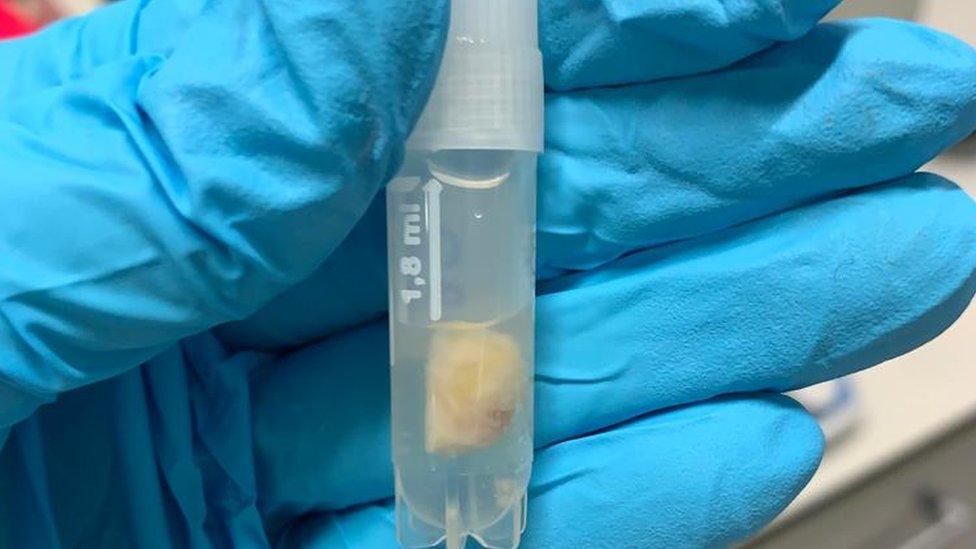
A piece of a tumour which can be about 20cm (8 inches) in length in a patient
Lead researcher Dr Darrell Green, from university's Norwich Medical School, said primary bone cancer was "the third most common solid childhood cancer, after brain and kidney, with around 52,000 new cases every year worldwide".
"It can rapidly spread to other parts of the body, and this is the most problematic aspect of this type of cancer," he said.
"Ultimately, we want to save lives and reduce the amount of disability caused by surgery.
"And now we have developed a new drug that potentially promises to do just that."
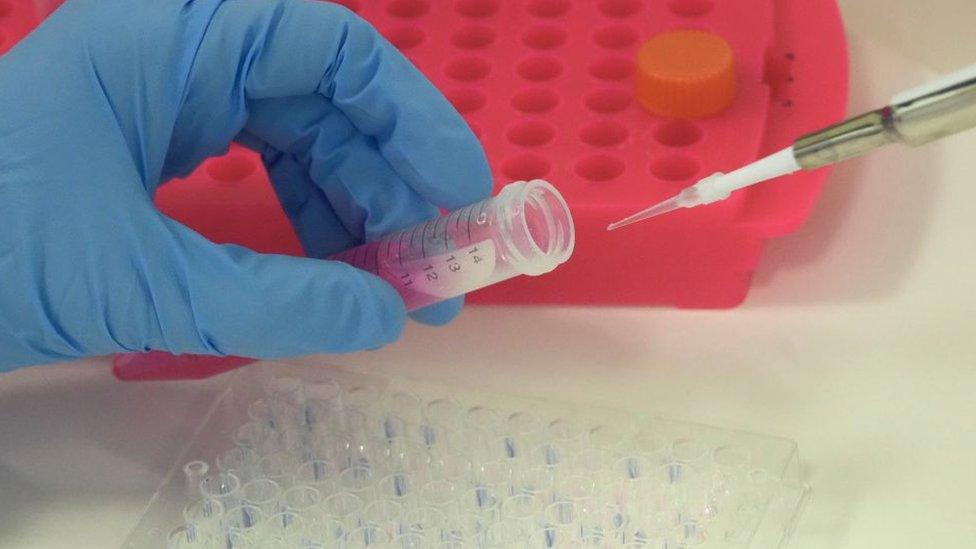
Testing of the CADD522 has been carried out using mice
The team collected bone and tumour samples from 19 patients at the Royal Orthopaedic Hospital in Birmingham.
However, this small number was more than enough to detect some obvious changes in the cancers, researchers said.
Next-generation sequencing was used to identify types of genetic regulators, called small RNAs, that were different during the course of bone cancer progression.
They also showed that a gene called RUNX2 was activated in primary bone cancer, and that this gene was associated with driving the cancer's spread.
CADD522 blocked the RUNX2 protein from having an effect.
Dr Green said: "In preclinical trials, metastasis-free survival was increased by 50% using the new CADD522 drug on its own, without chemotherapy or surgery.
"I'm optimistic that combined with other treatments such as surgery, this survival figure would be increased further.
"The new drug that we have developed is effective in all of the main bone cancer subtypes and, so far, our experiments show that it is not toxic to the rest of the body.
"This means that it would be a much kinder treatment for children with bone cancer, compared to the gruelling chemotherapy and life-changing limb amputation that patients receive today.
"We hope it will save a lot of lives."
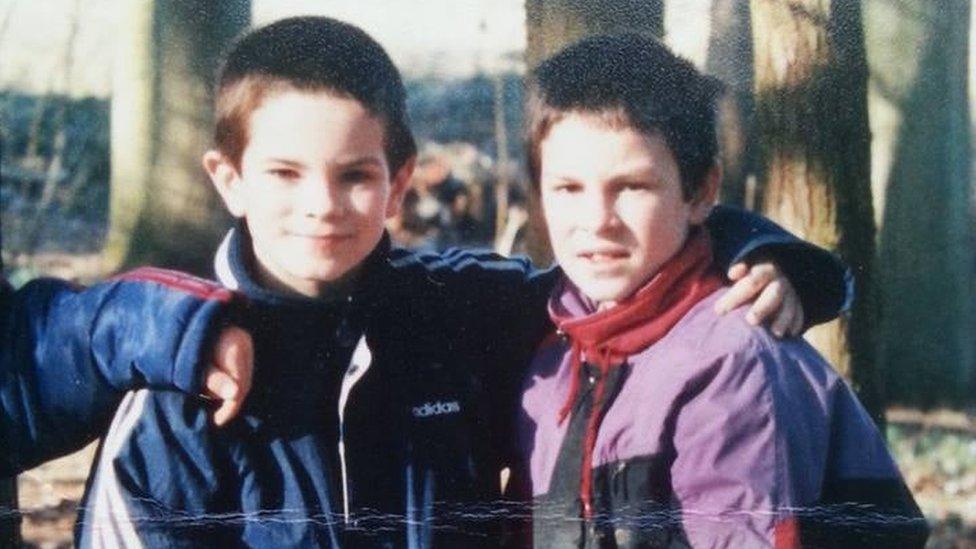
Dr Darrell Green (right) as a child with his friend Ben Morley who died as a teenager from bone cancer
The research was led by the UEA in collaboration with the University of Sheffield, Newcastle University, the Royal Orthopaedic Hospital in Birmingham, and the Norfolk & Norwich University Hospital.
This work can be found in the Journal of Bone Oncology, external.

Find BBC News: East of England on Facebook, external, Instagram, external and Twitter, external. If you have a story suggestion email eastofenglandnews@bbc.co.uk, external
- Published24 June 2017
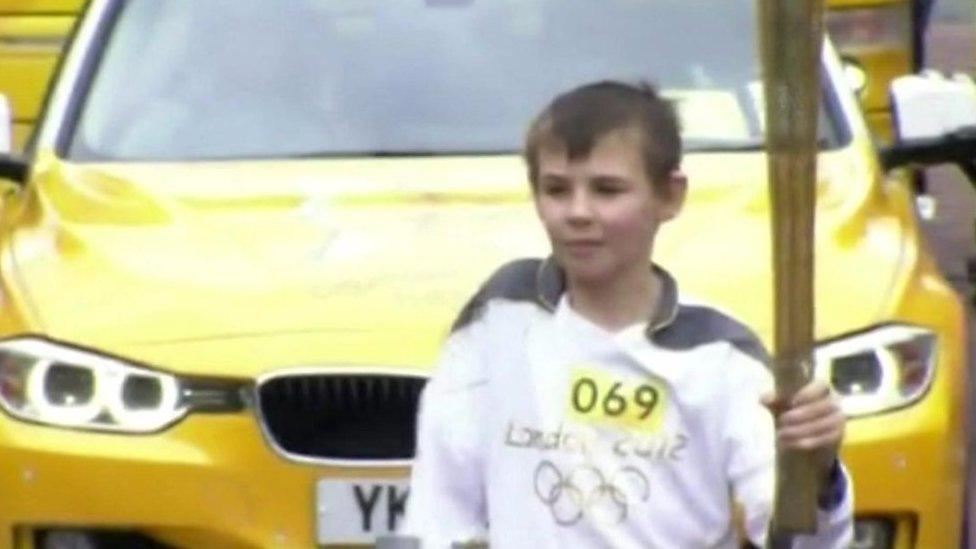
- Published5 October 2013
